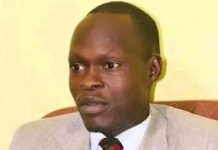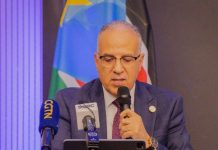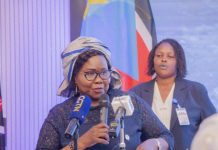Africa-Press – South-Sudan. The Chair of UN Commission on Human Rights in South Sudan Yasmin Sooka has said that political elites in the world’s youngest country are responsible for the ongoing deadly ethnic conflict in Tambura County of Western Equatoria State.
Sooka said nine of the 10 states in the country are engulfed in violence – with recent violence between the Azande and the Balanda communities in Tambura resulting in the massacre of more than 100 civilians.
Women and children were said to have been raped and sexually assaulted, before being killed. At least 80,000 civilians are displaced. Hundreds of children became separated from their parents.
“Nine out of the ten States in South Sudan is engulfed in violence. Recently, the deadly ethnic clashes between the Azande and Balanda communities in Tambura, in Western Equatoria resulted in the massacre of more than 100 civilians, with women and children raped and sexually violated, before being killed,” Yasmin Sooka, chair of the UN Commission on Human Rights in South Sudan, told the UN’s Human Rights Council in Geneva on September 23.
“A further 80 000 and 125,000 civilians are said to be displaced. Hundreds of children became separated from parents. The South Sudan People’s Defence Forces (SSPDF) and the Sudan People’s Liberation Army/In Opposition (SPLA/IO have) are responsible for arming the Azande and Balanda communities. South Sudan’s leaders and political elites are active participants and enablers of this violence,” she added.
The top UN rights chief in the country said “South Sudan’s leaders and political elites are active participants and enablers of this violence.” Sooka further said the delay in the establishment of the unified army and failure by the government in Juba to deliver services to the citizens has contributed to the escalation of sub-national violence across the country.
“The failure to establish a joint army and command structure has heightened tensions in the country. The lack of basic services has led to the widespread desertions, which have affected all sides with armed elements preying on vulnerable communities,” she said.
“The proliferation of armed groups outside of the peace process and the fragmentation of the SPLM/IO have led to violent clashes including in the Upper Nile region, and the massive displacement of civilians. The disintegration and fragmentation in the security sector owes its origins to the current political process which rewards military actors with political power in an elite accommodation,” she added.
The SSPDF and the SPLA-IO have not commented on the UN report. The South African human rights lawyer said the failure to establish a joint army command structure had heightened tensions in the country.
The Azande and the Balanda communities have been living peacefully together in the Tambura area for centuries. Intermarriage was common as a result of the religious and ethnic tolerance.
But in July this year Alfred Futuyo Karaba, the governor of the south-western state, accused four prominent politicians residing in the capital, Juba, of fermenting the violence in Tambura – an allegation they denied.






